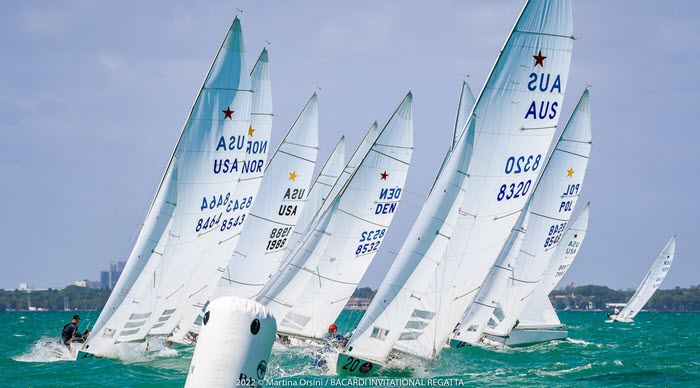
The Racing Rules of Sailing allow for competition in the sport, but when there are no parameters to the playing field, the rules have to anticipate every situation. That has invariably made them more complicated, a situation well noted in Rule 18.
This rule applies when boats are rounding or passing marks, whether it be marks on a windward-leeward course, or a random leg course, or any conceivable mark rounding. Rule 18 is the Swiss Army Knife of rules, which isn’t necessarily a good thing.
“There is no way any weekend warrior could know the specifics of that rule, and all the others, to sail properly,” noted Scuttlebutt reader Peter Sutton. “The rules have gotten so detailed due the pushing of pros and Olympians, and have gotten nearly irrelevant for the bulk of the sport they also must serve.”
The good news is how World Sailing Racing Rules Committee working party is on a mission to simplify Rule 18. Here’s some friendly feedback:
Frederic Berg:
Start with the objective of the rules. Ask any international sailor or rules expert what the objective of the rules today is and they will tell you with a straight face the objective of the rules is to make the game interesting.
Think about that for a minute, the objective of the rules is to make the game interesting. As if sailing itself was not interesting enough. I get it, windward-leewards are not the most interesting sailing courses around, and so it’s natural to turn to the rules to make the game interesting.
The objective of rule 18 should be to round marks efficiently, fairly, and with clarity of the right of way boat. However, I have a hard time with rule 18 and so does every judge I have ever sat with in judgment on a rule 18 case.
Those same experts and international sailors get together each year and scratch their collective heads wondering why sailing is in decline. I suggest reaching outside the tiny community of rules experts and international sailors for guidance.
Peter (PJ) Backshall:
I agree entirely with Peter Sutton regarding how the rules have become irrelevant for the bulk of the sport, and take it a step further by noting how pros, Olympians, fleet champions, etc. make it their duty to ‘bend’ the rules when it suits, making them largely responsible for bringing the sport into disrepute (and decline).
The current system allows some people to sail outside the rules in the knowledge they can get away with it. Mediation, protests, and appeals can be slow, costly, and often overrun with lies and deceit making ‘fair sailing’ a thing of the past. One remedy is to impose substantially strong penalties for ‘intentionally bending the rules’ such as imposing a ban from competition.
Simplified rules and fair sailing should be universal and those who want to ‘bend’ the rules should be given notice to take up another sport.
Editor’s note: Other sports have ‘flopping’ rules to alleviate cheating. Should sailing follow this example?

